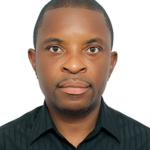
Introduction
Ghana stands at a critical crossroads. While the nation has experienced periods of economic expansion, this growth has often been described as jobless, widening the gap between financial gains and human well-being. Unemployment has reached alarming levels, with the Ghana Statistical Service reporting an overall unemployment rate of nearly 15% and youth unemployment hovering around 30%. This silent pandemic has far-reaching consequences, manifesting in growing inequality, rising poverty, environmental degradation, and a trust deficit in key institutions.
The central question is this: Have we, as a nation, become so focused on financial capital that we are eroding the very social and natural foundations upon which sustainable prosperity depends?
Financial Capital at the Centre
Milton Friedman and the Chicago School of Economics famously argued that the sole purpose of business is to maximize profit. While this thinking dominated economic policy for decades, it has fostered an economic model that rewards short-term financial gains, often at the expense of environmental sustainability, ethical conduct, and social cohesion.
Ghana exemplifies this challenge. Business models across multiple sectors—including extractive industries—are primarily driven by financial capital. Natural resources are exploited without adequate consideration for ecological regeneration, and profits are too often prioritized over people and planet.
The consequences are evident: galamsey (illegal mining) has ravaged water bodies, farmlands, and forests, leaving behind irreversible scars on Ghana’s natural heritage. Companies that prioritize financial gain over stewardship undermine not only ecosystems but also the long-term well-being of communities that depend on these resources.
Erosion of Natural Capital
Natural capital refers to the stock of renewable and non-renewable natural resources—forests, water bodies, minerals, biodiversity—that sustain life and drive economies. Yet, Ghana’s natural capital is under siege. The galamsey menace provides a stark example: driven by short-term financial gain, vast tracts of fertile land and critical river systems are destroyed, jeopardizing food security and drinking water supplies.
On 6th August 2025, tragedy struck when eight heroes on a mission to launch the Responsible Cooperative Mining and Skills Development Programme (rCOMSDEP) perished near Obuasi. Their mission—to offer alternatives to illegal mining and promote sustainable livelihoods—underscores the urgency of transitioning to responsible resource management. Unless the protection of natural capital becomes central to our development agenda, Ghana risks trading its future for fleeting financial gains.
Decline of Social Capital
Social capital—the web of trust, relationships, and shared values that bind societies together—is equally under threat. Francis Fukuyama (1999) described trust as the “lubricant that makes any group or economy run efficiently.” Yet, in Ghana today, public trust in institutions is eroding rapidly.
The Afrobarometer survey (2024) paints a sobering picture:
Trust in the Electoral Commission has plummeted from 75% in 2005 to 33% in 2022.
Confidence in the courts has declined from 62% in 2005 to 36% in 2022.
Trust in the police has collapsed from 64% in 2005 to 28% in 2022.
This trust deficit undermines social cohesion and weakens democratic governance. It also spills into workplaces, where employers frequently lament the lack of ethical conduct and perseverance among young employees, even as youth unemployment remains widespread.
An Economy Out of Balance
Our overemphasis on financial capital has created systemic imbalances. As Bruno Roche, architect of the Economics of Mutuality framework, notes, “Businesses should make profit by solving problems, not by creating them.” Yet, Ghanaian businesses as in the “Galamsey sector” extract value without reinvesting in the communities and ecosystems that sustain them.
This model has yielded three crises:
Environmental degradation – ecosystems are collapsing under relentless exploitation.
Erosion of social cohesion – trust in institutions and relationships is fraying.
Inequality and polarization – wealth creation benefits a select few while the middle class shrinks.
The result is a fragile economic structure that prioritizes short-term gains while ignoring the long-term sustainability of both society and the environment.
A Call for a New Economic Model
To reverse this trajectory, Ghana must embrace a model of development rooted in stewardship, service, and sustainability—what thought leaders call a redemptive economy or the Economics of Mutuality. This paradigm shifts the purpose of business from maximizing shareholder returns to serving people, restoring nature, and creating shared prosperity.
Profit is not inherently bad—it is a necessary outcome to sustain business—but it must be viewed as a by-product of solving real problems and creating genuine value. As the famous architect MBS once said:
“He who seeks profit will find destruction in the end.
But if you seek to serve your fellow human beings,
you will find joy and blessing.
Profit is a by-product, not the goal.”
Ghana needs an economic transformation that integrates financial, social, human, and natural capital as interdependent resources, rather than treating financial gain as the sole metric of success.